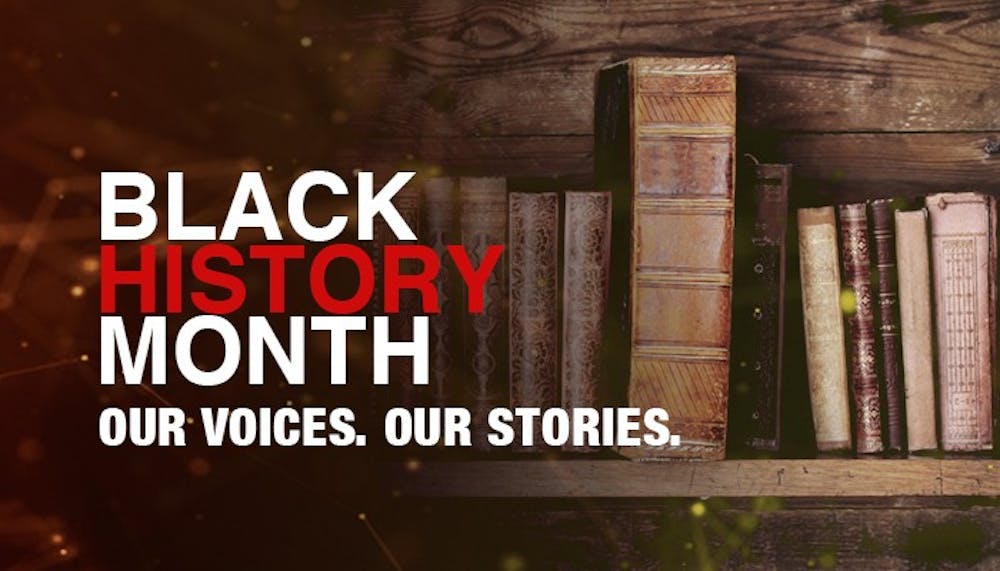Poets explore racial issues through spoken word at Black History Month event
Black spoken-word artists used poetry to explore both historical and modern racial issues in a Black History Month Poetry Showcase Jan. 13 in Pearce Hall. The event feature Flint poet Ernest Mack, also known as "Nobody Big Yet."
For Mack, poetry can be a form of “artivism.” He learned from a mentor that he has a responsibility to do something with his art: to “tell something worth telling.”
One such “artivism” piece honored Martin Luther King Jr. and reflected on King’s connection to racial issues today.
Mack introduced the piece by talking about racial issues at his college Eastern Michigan University, including bias incidents. In one incident, a black Barbie doll was left on a noose. In another, someone wrote, “Go home n***ers.”
“They build you statues,” Mack told King in the poem. “They still torture your grandchildren.”
“I know that you knew without a doubt that black lives matter,” Mack said.
The poem referred to King as, “a voice so powerful they threatened (King) for speaking about love.”
“The most peaceful man on earth was murdered,” Mack said at the end. “America killed our drum major, hoping that it would silence our band.”
Another poem by Mack sparked from someone telling him black women are the most unprotected group of people. Mack then thought about the songs he listened to and realized how upset he’d be if someone directly told a woman those things — so Mack wrote a poem celebrating black women.
“Black woman is magical,” he said. “Holding up broken homes with her bare hands.”
“She can move at a fast-enough pace that she can place her children on a bus and still make it to work on time,” Mack said. “(She) ages like the finest of wine, stands with the strength of all her ancestors combined.”
“Her ambition matches her eyebrows,” Mack said. “They remain on fleek even throughout the 40-hour work week.”
Still, Mack acknowledged it’s a work-in-progress and asked attendees for input on how to improve it. While black women are strong, the onus shouldn’t be on them to change everything, he said.
Student poets Danielle Horton and Tre’Von Rucker, from poetry RSO the Motions, also shared their work. The Motions will be hosting a poetry open mic at 7:30 p.m. Feb. 17 in the Center for Inclusion and Diversity.
“My mama was the first example of black excellence I can remember,” Horton said in one poem.
Another poem explored black Americans’ sense of worth in a racist society.
“Today I looked in the mirror and saw an abandoned city,” Horton said. “I couldn't see the value in it anymore, like the world had sucked all the life out of me — society has its way of doing that.”
“To my future daughter, I apologize,” she said. “But there may be days when I am unable to be your bulletproof vest.”
“Society may get to you sooner than I can,” Horton continued. “It won’t always know how to appreciate your mahogany-rich skin.”
Detroit junior Kashmir Preston said she especially connected to the poems about black womanhood.
Poetry performances help Preston “clear (her) head and destress.”
“It was inspiring and empowering,” Preston said.







